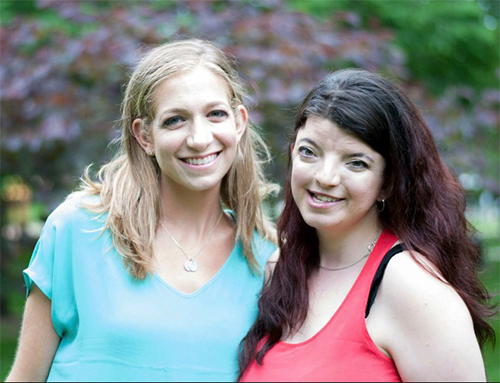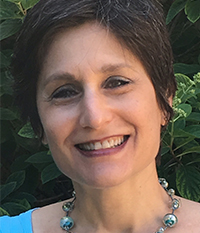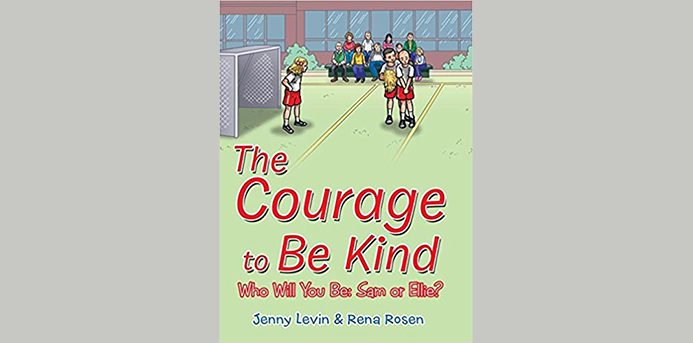What inspires children to be kind? Is kindness innate, something we are born with and need to nurture?
Two local teachers, Rena Rosen and Jenny Levin, tackle these questions in their recently published book, “The Courage to Be Kind” (Archway Publishing, 2017). The two friends combined forces to fulfill a need, and in doing so are inspiring compassion and acceptance from children, parents and school groups across Chicago.

Levin teaches second grade and is a mother to two young girls. A couple of years ago, one of her daughters pointed to someone with visible physical differences and asked, “What’s wrong with her?”
Levin was caught off guard. She answered her daughter’s questions, but realized she needed a better knowledge base both as a parent and a classroom teacher. Where was the information she sought to answer questions directly and honestly without sounding like she was reading from a medical school textbook? What’s the best way to explain Spina Bifida or Apert Syndrome to a child? She looked online and in her school’s library, but could not find an age-appropriate book that would satisfy a child’s curiosity while encouraging acceptance and understanding.
Around the same time Levin was unable to find the resource she envisioned, her friend, Rosen, was teaching preschool, working on her photography exhibits, and pursuing a burgeoning career in public speaking on “The Art of Compassion.”
Rosen knows a lot about compassion. She was born with a cleft lip and palate as well as other craniofacial abnormalities. She endured 12 surgeries from the time she was just a few weeks old until age 22. She faced many challenges, but none of them were cognitive. Rosen attended school and was treated just like any other kid by her parents, extended family and close-knit community. She felt loved and accepted, and didn’t focus on her differences … until she enrolled in college and realized the rest of the world didn’t see her in the same way she saw herself.
Levin shared her idea with Rosen and the two women decided to work together. The women felt the book should include photos of people with the conditions they described and lots of facts about each syndrome. They made sure to include plenty of follow-up resources for parents and teachers, as well as a wide range of scenarios to make the story relevant to different age groups. (A few of the resources Rosen and Levin include in their book include CerebralPalsy.org, KidsHealth, FACES: The National Craniofacial Association and Spina Bifida Association.)
The book was geared purposely toward both children and adults based on informal research through social media. Parents admitted feeling “mortified” and needing “to leave as quickly as possible” when confronted with an innocent — but direct — question from their child about a person with differences. The authors realized that straightforward, candid information was the missing piece needed to remove the sense of embarrassment and fluster. They would provide parents and teachers a framework to explain differences to children, one that emphasized our common humanity and shared feelings.
Marci Dickman, director of lifelong learning at Beth Emet The Free Synagogue, is eager to include the book and its authors in a program for the upcoming school year. According to Dickman, “It’s important that children learn about including others, regardless of their differences. Sometimes the differences are physical and obvious, and sometimes the differences are more subtle. In my experience, having factual information makes a huge difference in how kids react to unfamiliar situations.”
Levin admits, “I’ve learned more from our own book by talking about it with others who’ve read it, both parents and kids. Kids have been the best. Kids feel like it’s okay to ask questions and they feel better when they know what to do. They feel prepared, they feel safe. They like structure and knowing what’s appropriate.”
As the publication date approached, Rosen’s biggest fear was the reaction of the disability community, but everyone thus far has been receptive. The feedback from parents of children with differences has been overwhelmingly positive. According to Rosen, “The book offers one way for them to have a voice, to express their feelings about their own insecurities and fears. It provides a vocabulary to explain and talk about differences with others. Most people want to say and do the right thing.”
As first-time authors, their skills and personalities complement one another. Both women are passionate about teaching, and their devotion to improving the lives of children is evident. The book has become almost a crusade for them and they want to get the word out to as many people as possible.
For Rosen and Levin, every day is an opportunity to demonstrate how each of us can embrace differences, understand the facts behind those differences, and cultivate kindness and compassion.
More from Make It Better:
- 10 Ways to Set Kids Up for a Night of Healthy Sleep
- This Too Shall Pass: Balancing the Joy, Frustration and Exhaustion of Parenthood
- The Benefits of Family Dinner (and 5 Easy Ways to Make It a Priority)

Wendi Kromash lives in Evanston, works as the Director of Development for Beth Emet The Free Synagogue, and enjoys biking the Green Bay Trail with her dog, Fig.

